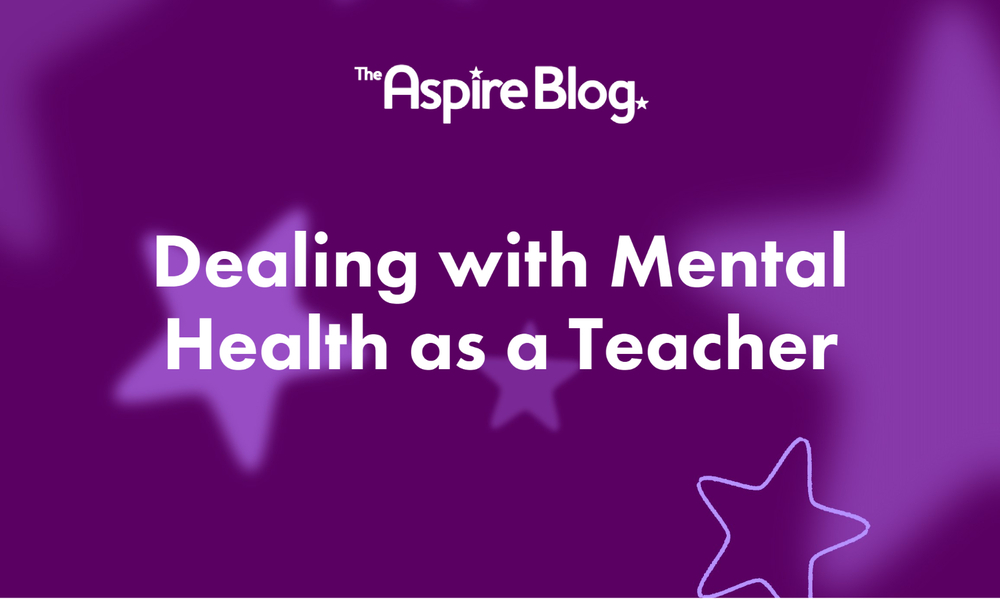Dealing with Mental Health as a Teacher
Published date: 2019/10

Teaching staff often face issues with their students who struggle with mental health; although this is an important issue to deal with in a school environment it is also crucial to deal with personal mental health battles as a teacher.
Teaching professionals tell us about the fantastic reasons why they love their job and the rewards of being a teacher:
Helping children to grow academically
Different school environments
Building relationships with other teachers and working as a team
Working with children, in the classroom and school
Working hours
School holidays
Although teaching staff do love and enjoy their job, we know there are also dislikes within their role. Such as:
Planning work management
Lack of resources
Dealing with misbehaviour
Redundancies
Ofsted
Feeling unappreciated
Some of these dislikes and stresses within a school can then lead to anxieties for teachers, from research we know that 56% of teachers suffered from insomnia and disturbed sleep patterns due to issues in a school environment.
How to ‘cure’ Anxiety and Depression as a Teacher
Unfortunately, there is no simple ‘cure’ for anxiety, however there are many ways you can help to prevent and ease stresses. Sometimes you can get caught up in the fast pace of life and teaching, but it is important to ensure you can take a step back and recognise ways to help yourself.
How to Prevent Anxiety
Making time for fun and more sociable activities, by boosting your social life with friends and family members can be a way to relieve stresses of life with laughter therapy.
Live and work but do not forget to play, to have fun in life and really enjoy it. – Eileen Caddy
Join a gym or engage in frequent physical activities, exercising is known to release chemicals called endorphins within your body. Endorphins then interact with your brain and help to release a ‘happy feeling’. Doing exercise is also known to increase, improve and help to relax you. All these factors then lead to improving your mental health.
Listen to music, this helps by relaxing the brain and body. To do this you should listen to appropriate and soothing music; take to find some songs for you!
If you are a teacher struggling with a mental health battle or know other staff members in your school require some help. It is important to reach out today, get in touch with someone who can support you. Take a look at the Aspire Blog today to see more ways teaching resources and tips such as How to Deal with Mental Health in the Classroom.
